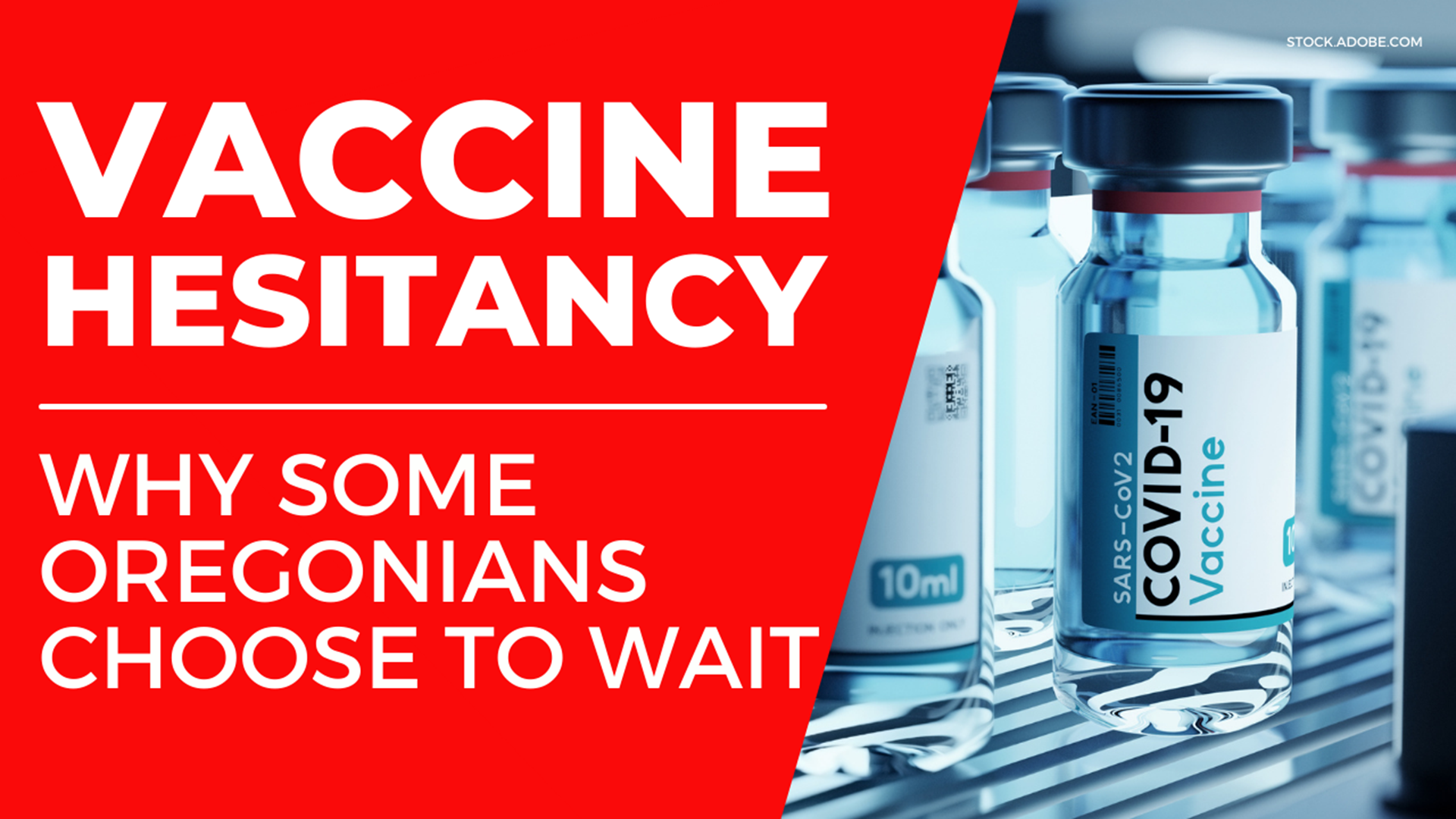PORTLAND, Oregon — The KGW Vaccine Team has been digging into vaccine hesitancy to better understand why many Oregonians are waiting to get a COVID vaccine or not planning to at all.
Recent polls show 25% of Americans remain vaccine-hesitant and reasons run the gamut.
The more people who don’t get the vaccine, the longer it takes to reach herd immunity, which experts now believe may not happen in the United States.
Jenny Pasterrnak of Sherwood emailed KGW after a recent story and shared her thoughts on why she doesn’t plan on getting the shot.
Pasternak said she knows COVID is serious, but she wants more long-term studies on the vaccine.
“I don't want to think short-term, I want to think long-term and what are the long-term side effects and that can not only thing we can do is wait and see.”
KGW heard from dozens of viewers after a recent Sunrise Extra on Facebook Live focused on hesitancy and some of the incentives being offered to entice people to get the shot.
Some said they still wanted more information while others cited debunked reasons and misinformation for deciding not to get it.
Dr. Cliff Coleman, an associate professor of family medicine at Oregon Health and Science University, said while many of his patients will get the vaccine, others want more time or fully believe misinformation.
“People who are really adamant that they don't want it are often citing information that's just factually incorrect,” said Dr. Coleman.
A lot of vaccine misinformation starts and spreads online.
A recent report by Media Matters found 110 active anti-vaccine groups on Facebook.
The groups have tens of thousands of members and spread debunked and false claims about the vaccine.
Media Matters found even when Facebook recently shut down a supergroup, new sub-groups with thousands of members pop right back up.
“It just shows once again, Facebook’s enforcement strategies here are very limited, inconsistent, and largely ineffective,” Julie Millican of Media Matters said.
The Center for Countering Digital Hate (CCDH) found anti-vax groups have 58 million followers across the U.S. and the U.K.
“Doctors have the harder job because doctors have to persuade people to go and actually get off their sofas and go and take the vaccine. All the anti-vax industry does is flood people with misinformation to make them hesitate,” Imran Ahmed, CEO of CCDH, said.
Amed said 65% of the vaccine information shared online originates with 12 individuals and their networks.
However, experts told KGW misinformation is not the cause of all hesitancy. Some people want more information, others just need more time.
For some, like Pasternak, there is nothing that will change their minds.
“But as of right now, no, there, there is nothing anybody can say to me. If this was like Ebola, I would get that. I would get a vaccine for Ebola because you know, you have like a 50/50 chance,” Pasternak said.
Physicians, like Dr. Coleman, are more optimistic that one on one conversations between vaccine-hesitant people and their doctors could turn the tide of hesitancy.
With the Biden administration moving away from the mass vaccination sites and sending more vaccines to doctors, that could mean more conversations about why people are hesitant and maybe, more shots in arms.
“Being non-judgmental and creating an open, ending a space for a dialogue is really the key.”
Do you have a vaccine-related story for Cristin? Email her at callcristin@kgw.com

